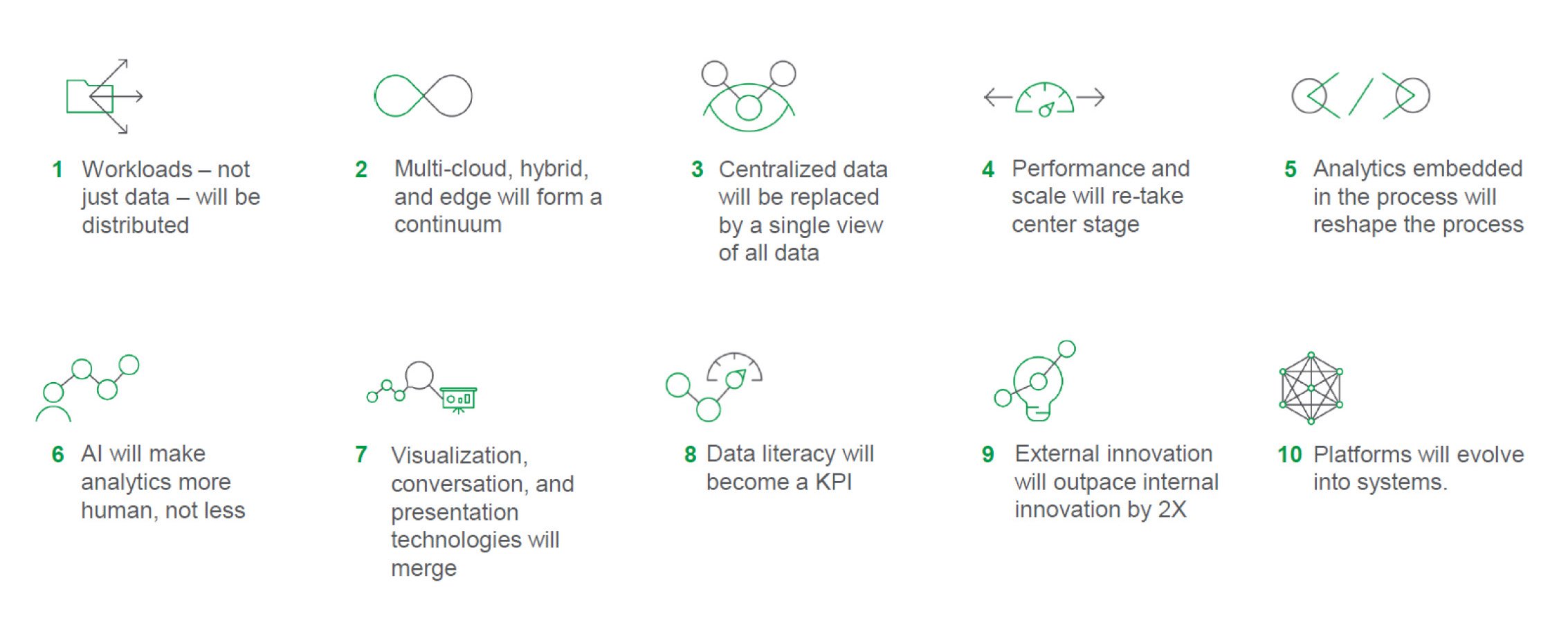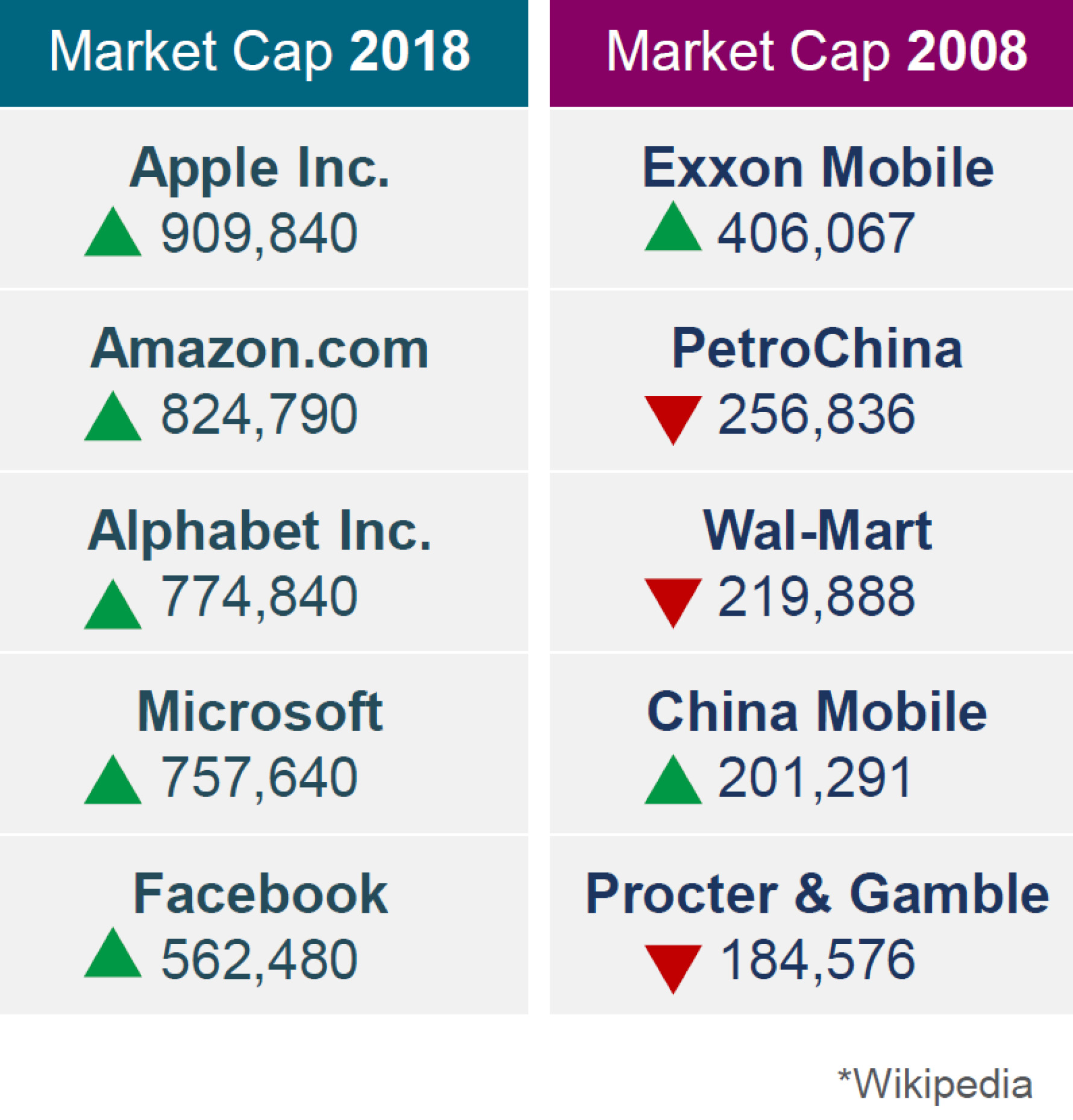Qlik's Top 10 Trends for 2019
Didn’t get the chance to watch Qlik’s Top BI trends of 2019, don’t worry as we have summarised the key highlights below. And there is also chance to re watch the webinar as well. Have a read and join in the conversation of what your thoughts and key trends for the year are on LinkedIn.
As a self confessed Qlik and Business Intelligence (BI) addict, I eagerly await what I believe, to be the most influential and important webinar of the year. It’s the annual communication from Qlik as to what the BI landscape looks like and its direction for the year. Importantly, it also summarises the company direction better than anything else they publicly release.
This year, Dan Sommer (Senior Director for Market Intelligence) titled the webinar “The Dawn of Postmodern Analytics”. This really set the tone and vision that 2019 sees the move from the current modern analytics space to an entirely new future of analytics.

10 trends, that point to the Postmodern platform, for the BI of the future:

My view is that Qlik have really hit the mark on all 10 of these trends, and if they are able to execute on them in 2019, we will really see a major transformation of the BI market and how analytics are consumed.
Is it all moving to the cloud?
In summarising the trends, I believe that 1, 2 and 4 really belong together. The data migration to the cloud we have seen over the last few years has been prolific, and isn’t slowing down any time soon. This shift to the cloud is allowing organisations to not only distribute data storage and computing power but workloads as well. The emergence of microservices, such as Kubernetes, brings organisations the ability to scale and disperse workloads, whilst making use of both the elasticity of the cloud when it comes to performance, as well as edge computing.
It was interesting to hear how consumers of analytic / BI systems have seen performance as not a critical measure (as it was back in the traditional BI space). The Postmodern era is sure to change this!
Centralised data v Single View
Interestingly this leads into the next trend around centralised data v single view of all data (trend 3). I guess it’s no surprise to hear that that a large amount of resource has been used (wasted) on the unsuccessful setup of huge data warehouses and data lakes over the last few years. I personally have seen many Hadoop projects which have just become cheap storage solutions! Post review of these projects and the evolution of the BI tools in the market are now seen a push to what Qlik coined as a theme 24 months ago (from memory) of “leaving data where it belongs” and using the power of BI tools to index, catalogue, and standardise this data for consumption. Not only does this make economic sense, but also allows for faster decisions, better performance and utilisation of distributed computing.
Is AI going to rule the world?
Embedded Analytics and AI (trends 5 and 6) also made the hot list for 2019. It was interesting to hear how embedded analytics are being used in process shaping and refinement especially when linked into some form of AI or machine learning pathway. As these trends become more mainstream, the view is that intelligent process automation and process mining will help automate business processes and make them more efficient. This efficiency gained through the process will then allow AI to make analytics more human. Far from the fear that “AI is taking our jobs away”, it will allow us to make better use of these efficient processes, and spend more time analysing data. This links back to the true meaning of AI being Augmented Intelligence rather than Artificial Intelligence!
Are you data literate?
This leads nicely into trends 7 and 8. It’s no surprise that data storytelling and conversational analytics are the future, with the days of static PowerPoint (sorry Microsoft) on the decline. But this trend has a huge dependency of course on data literacy. Organisations that focus attention on data literacy have benefited from better performance, higher profits and greater market capitalisation. Just look at what has happened over the last decade below when it comes to the largest companies on the planet:

It’s those that embrace data, have a high appetite for data literacy ingrained in their ethos, that are on top today. The notion that data literacy will become a KPI for an organisation seems very likely and supports the idea of conversational analytics becoming mainstream. The emergence of natural language generation (NLG), natural language query (NLQ) and natural language processing (NLP) are empowering users of all levels to be data analysts in some capacity or another.
Innovation, innovation, innovation
Finally trends 9 and 10 which address the notion of the platform with emphasis on open API’s and external innovation close out the 2019 list.
Co-innovation was really key here, and platforms that allow customers, partners and users to all contribute and innovate is where the future is headed. Whilst those who work in an organisation know the business and their product best, they are also not the best when it comes to innovation and of course their resource is finite. Allowing external input allows for infinite amount of innovation. Qlik predicts that innovation from open platforms and ecosystems will outpace those with only internal capabilities by a factor of 2x.
Similarly, Qlik also discusses the notion that platforms will evolve into systems due to the way that we interact with them. Gone are the days where humans were the only participants, with the evolution of bots, intelligent agents, extensions and algorithms also working along side.
It’s this open platform / system approach that leads us into 2019, and the start of a very exciting era of Postmodern Analytics. If you have the time, I really recommend everyone to watch Dan’s presentation, and look through the e-book.
WANT TO KNOW MORE?
Jonas Grundström
Sales & Business Development Director
jonas.grundstrom@climber.se
+46 73 340 26 36
Olof Malmström
BI Manager Manufacturing
olof.malmstrom@climber.se
+46 73 443 48 50
News

Qlik Partner Advisory Council 2025
Qlik has announced their Partner Advisory Council members of 2025! We’re super proud to have our Group CEO Eva Chrona among them, and to have the opportunity to help define the future of data integration and analytics.
>> Read more here!
Webinar: Lyft FP&A inom fastighetsbranschen till nästa nivå
Att hantera hyresintäkter, driftskostnader och långsiktiga investeringar kräver en smart och datadriven FP&A-process. Med rätt struktur och verktyg kan du fatta bättre finansiella beslut, stärka lönsamheten och spara tid på manuellt arbete.
>> Jag vill veta mer!
Webinar: Effektivisera FP&A-processen inom Retail & E-handel
Snabba förändringar och pressade marginaler kräver en flexibel, datadriven FP&A-process. I det här webinariet lyfter vi vanliga utmaningar inom retail och E-com, och visar lösningar för bättre prognoser och effektivare processer.
>> Jag vill veta mer!
